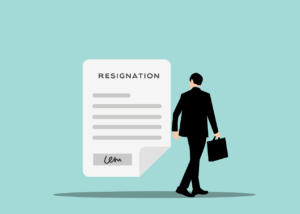When the new year arrives in earnest, some employers will be taken by surprise when a few employees announce they’re leaving their companies. The reasons for this are many, but there are some which are far more common than others. So, it’s critical for business owners and managers to know these motivations to address any shortfalls right away. Plus, how to proactively retain talent so productive individuals don’t leave.
Common Reasons Employees Leave Companies
There are a number of common reasons that employees leave companies, and understanding these reasons can be important for businesses looking to retain top talent and maintain a healthy and productive workforce. One major factor is the need for career advancement opportunities. Many employees are looking for opportunities to grow and advance within a company. If they feel like they are hitting a dead end or there are no clear paths for advancement, they may look elsewhere for opportunities that allow them to continue to grow and develop. Poor management is also a big reason. Employees want to work for leaders who are fair, supportive, and transparent. If they feel like they are being micromanaged, or if they are not receiving clear direction or support from their manager, they may start looking for a new job where they feel like they are valued and supported. Additionally, a poor work-life balance can play a role. A demanding or inflexible work schedule can be a major turn-off for employees, especially if it is causing them to feel burnt out or like they are unable to attend to other important aspects of their lives.Maximizing employee retention is one of the best ways to make sure your small business thrives. Unfortunately, staying fully staffed can be challenging in today’s business environment. According to Bank of America’s 2022 Small Business Owner Report, 41% of small businesses say labor shortages are currently impacting their businesses. —Bank of America Small BusinessLack of recognition or appreciation is most definitely the cause of team members leaving companies. Employees want to feel like their hard work is being noticed and appreciated. If they feel they are being taken for granted or not receiving adequate recognition or praise, they may start looking for a company where their contributions are clearly more valued. Unsurprisingly, poor compensation and benefits are big ones. While salary is not the only factor that motivates employees, it is an important one. If employees feel like they are being underpaid or not receiving competitive benefits, they may start looking for a company that compensates them with higher pay and/or benefits. Last but not least, a negative company culture. A toxic or unhealthy company culture can be a major deterrent for employees. If they feel like they are not a good fit with the company’s values or culture, or if they are experiencing harassment or discrimination, they may decide to leave in search of a more positive work environment. So, it’s important for businesses to understand the common reasons that employees leave and to make an effort to address these issues in order to retain top talent and maintain a productive and satisfied workforce.
How Businesses can Retain their Employees
Retaining top employees is important for businesses of all sizes, as it can help to reduce costs associated with hiring and training new employees, as well as improve overall productivity and morale. Here are some strategies that businesses can use to encourage team members to stay:- Offer competitive compensation and benefits. Employees want to feel like they are being fairly compensated for their hard work. Offering competitive salaries, bonuses, and benefits can help to keep employees satisfied and motivated to stay with a company.
- Foster a positive company culture. A positive company culture can be a major factor in employee retention. Creating a culture that is respectful and supportive can help employees feel more invested in their work and more likely to stay with a company.
- Provide opportunities for career advancement. Employees want to feel like they are growing and developing within a company. Offering opportunities for advancement, such as training and development programs, can help to keep employees motivated and engaged.
- Encourage work-life balance. A demanding or inflexible work schedule can be a major turn-off for employees. Encouraging a healthy work-life balance, such as through flexible scheduling, hybrid, or WFH options, can help to keep employees satisfied and less likely to look for new opportunities.
- Show appreciation and recognition. Employees want to feel like their hard work is being noticed and appreciated. Regularly thanking and recognizing employees for their contributions can help to build a positive and supportive work environment that encourages employees to stay on board.
- Foster open and transparent communication. Employees want to feel like they are in the loop and that their opinions are valued. Encouraging open and transparent communication, such as through regular check-ins and feedback sessions, can help employees feel more connected to the company and more likely to stay.



